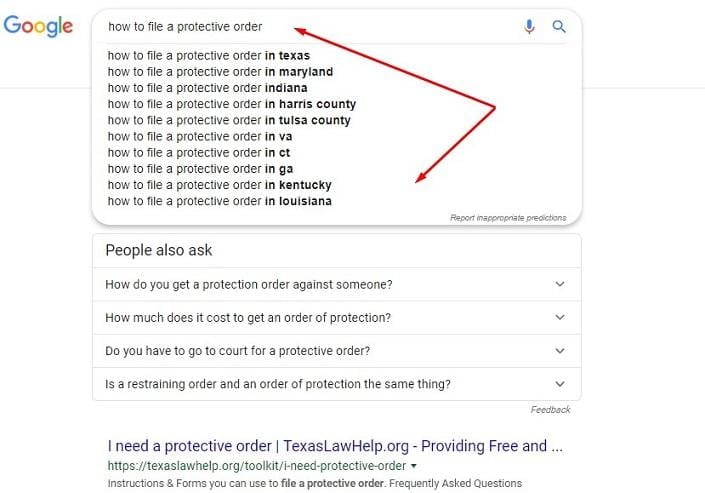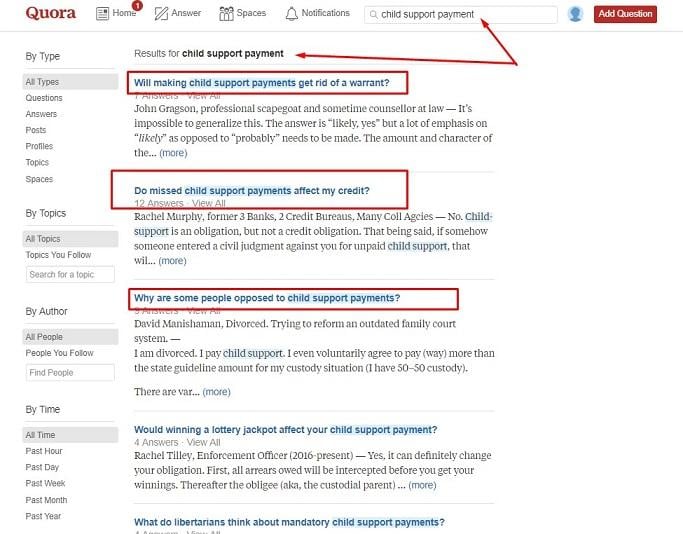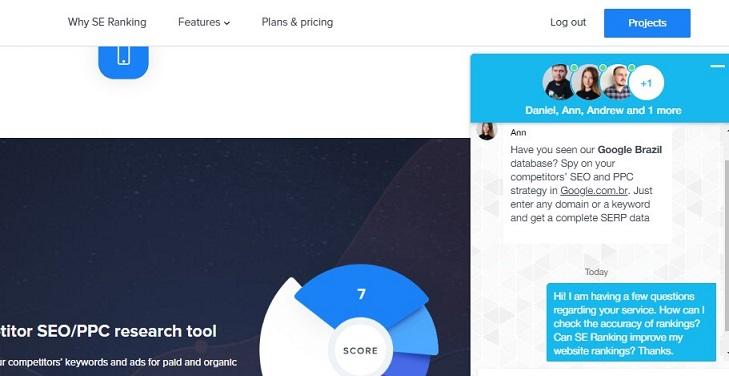
Everybody wants to rank for high-volume keywords. Who wouldn’t want a huge amount of traffic, conversions, and sales from organic search? But not every business can rank for high-volume keywords. Those super popular keywords are way more competitive, which means many more sites are competing for the limited number of spots on the first page of the SERP. So what can you do if you’re a smaller business with a less authoritative site?
Luckily, there’s a simple solution: adding long-tail, low-volume keywords to your SEO strategy. Hear me out.
You want to attract visitors who are looking for specific information from your business or are ready to make a purchase so that you can make a sale. One way to do this? You can identify and target low-competition keywords to have a far better chance of ranking.
Here are four ways you can identify low search volume keywords to boost your SEO results faster:
- Get more out of user-generated content and communities
- Look to social media for conversational language
- Pull keyword ideas from YouTube
- Talk to your customer support team
Going beyond the traditional keyword strategy
You know that the overall success of SEO is closely related to keywords.
Many website owners use the traditional keyword strategy for boosting their site’s rank. They aim for high-volume keywords, write content, and wait to show up on the first page of Google.
This strategy can work, but it’s time-consuming, expensive, hard—and it can often come to nothing.
You have other options for your SEO strategy. Instead, you can focus on targeting low-volume keywords, especially long-tail keywords.
According to Search Engine Guide, Amazon gets 57% of its sales while using the long-tail keywords. I guess you’re about to realize why the long-tail keyword strategy seems to be more lucrative. With this tangible tactic, you can avoid tough competition, and still attract potential customers.
Now, I’ll show you four ways to get into the heads of your target audience and discover the right low-volume keywords that will support your SEO success.
1. Get more out of user-generated content and communities
User-generated content sites and social communities are two of the most fantastic resources to find untapped keywords. Because this is where people are less targeted with the content, but they’re covering a wide range of keyword opportunities. This is where people go online to get answers to their questions.
If you can spend just a few hours at these sites, you will easily understand what types of topics and questions your target audience is interested in—and you can uncover a load of keyword ideas in the process. Fortunately, there are a lot of generic and industry-specific content sites, blogs, forums, and social communities, like Reddit and Quora.
Let’s take a look at an example for a law office. Within a few seconds of surfing the threads on the FreeAdvice forum, a ton of potential keywords, phrases, and questions start to strike the eye.
Here are the results of the term “child support payment” on Quora:
Seems like a worthwhile keyword, right? These keywords and questions will most likely have a lower search volume, but they may be relevant to similar topics that generate hundreds or thousands of search queries and much higher traffic potential.
And don’t limit yourself to the same communities, like Reddit and Quora. You can find a bunch of websites with user-generated content that often fall between the cracks. For example, eBay and Amazon have hundreds of user-generated reviews for multiple products. In most cases, they are filled up with possible keyword ideas.
For finding untapped, low-competition keywords, you can also look at Craigslist, AliExpress, Zappos, and other similar sites. Just search these UCG sites regularly, and fresh keywords will continue to jump out.
2. Look to social media for conversational language
When people need to get a piece of advice or recommendations, they often use social media networks. The content they post on these sites is slightly different from the content you do for search; on social media, people usually post their questions or problems using the same language they would if they were asking aloud.
In order to reach your audience, you need to know how your customers talk about your subject, share their ideas, and interact with other customers. To this effect, Facebook, Pinterest, and LinkedIn are perfect places to uncover brilliant low-volume keyword ideas—in most cases, users on these platforms post questions the way they would speak.
For example, within a few seconds of viewing a Facebook group related to law practice, I’ve noticed that many people post topics in the form of a question that can help you find ideas for untapped keywords to target. Take a look:
I know that these aren’t fully-formed keywords, but it’s a great way to pull out interesting low-competition keywords and ideas to check in your go-to keyword tool and on the Google SERP.
If you’re working in the B2B space, LinkedIn profiles can be a powerful tool to find your ideal keywords. You know why? Because people usually write a lengthy description of their accomplishments, skills, and experience in regards to the niche.
3. Pull keyword ideas from YouTube
YouTube has experienced explosive growth since launching in 2005. YouTube currently counts 2 billion active users every month that would show a 5% increase over 1.9 billion logged-in monthly users. YouTube is a goldmine of keyword ideas as people search differently on YouTube. Check out different tutorials, how-to videos, industry news, Q&As, and product reviews to reveal additional avenues for your content strategy.
If you look around YouTube, you’ll notice that comments can be more useful and informational than published video data. Different areas of misunderstanding, specialties, backgrounds, and personal experiences often arise between people of all ages. It is one of the essential places to look if you want to find out what people talk about, how they’re talking about it, and what keywords they use.
The one thing you need to know: Don’t use YouTube for all of your keyword research on a specific topic. It often includes incorrect information, mislabeling, and biased promotions of different products.
4. Talk to your customer support team
When you are trying to generate new keyword ideas, talk to your customer service team as they present the front line of your company. They deal with your prospects and customers more than anyone else in your organization.
Your customer support team can provide real-time insights with common questions, concerns, issues, and kudos your customers are asking around your service or product. Talking to them, you can identify what information may be missing from your website and spark some keyword inspiration for your content marketing efforts.
Additionally, you can check out the live chat logs and emails to find out real questions from potential consumers. As an alternative, you can use a mind-mapping exercise with your team to gather the keyword knowledge from them. For example, you can start with the topic like “local SEO” and pull in topic branches and sub-branches that relate back to it.
Change the way you do SEO with low-volume keywords
SEO can be tough. It is difficult to compete with the big brands that have deep pockets and unlimited marketing resources for high-competition keywords. If you want to boost your overall SEO success, you should get inside the heads of your target audience and customers to find the topics that they are actively searching for.
Finding the right low-volume, low-competition keywords will help you increase the visibility and improve the reach of your online content. So start making your content richer, and pull it in the position to get traffic, leads, and sales!
About the author
Irina Weber is an experienced content marketing supervisor, blogger, and brand manager at SE Ranking. She is passionate about content marketing, social media, and always keeps up with industry trends. You can find here Twitter and LinkedIn.













